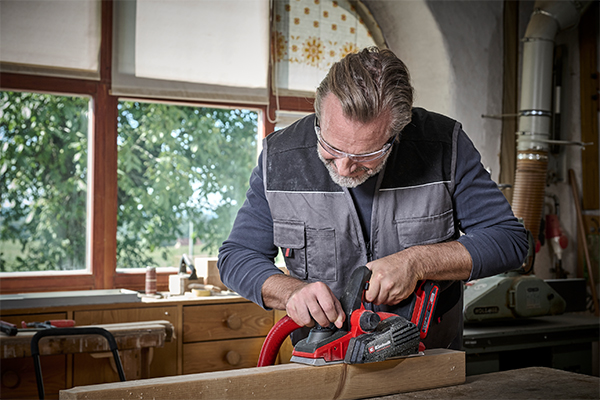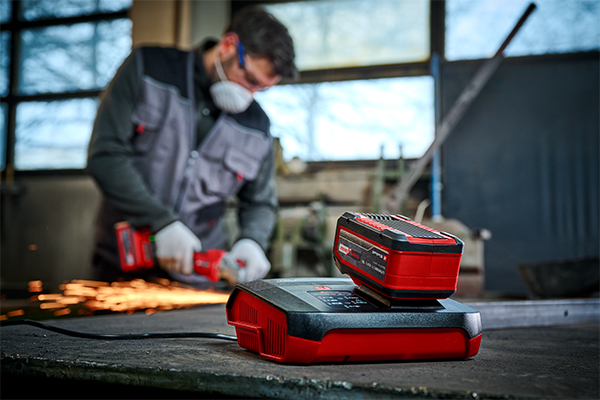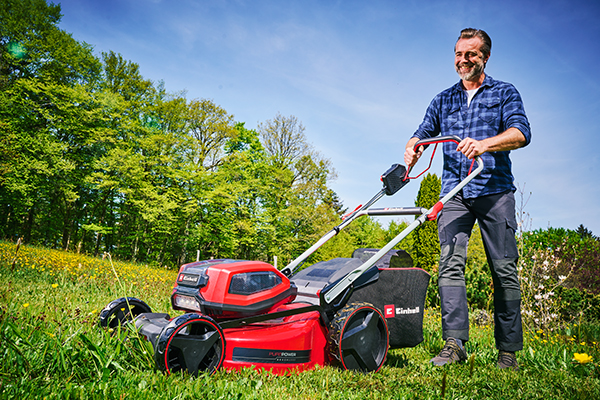Garden art at home: The perfect topiary for your shrubs
Elegantly shaped shrubs made easy: With Einhell shrub shears, you can shape even the most rebellious shrubs just the way you want. This gives you an easy way to decorate your garden with topiary while at the same time providing privacy and sound insulation.
A shaped cut, as the term suggests, is way of pruning your bushes or trees into any shape you want. You can really indulge your artistic side, or stick to geometric shapes and lines. Get started right away and use the shrub shears to create art in your garden that will impress your neighbors!
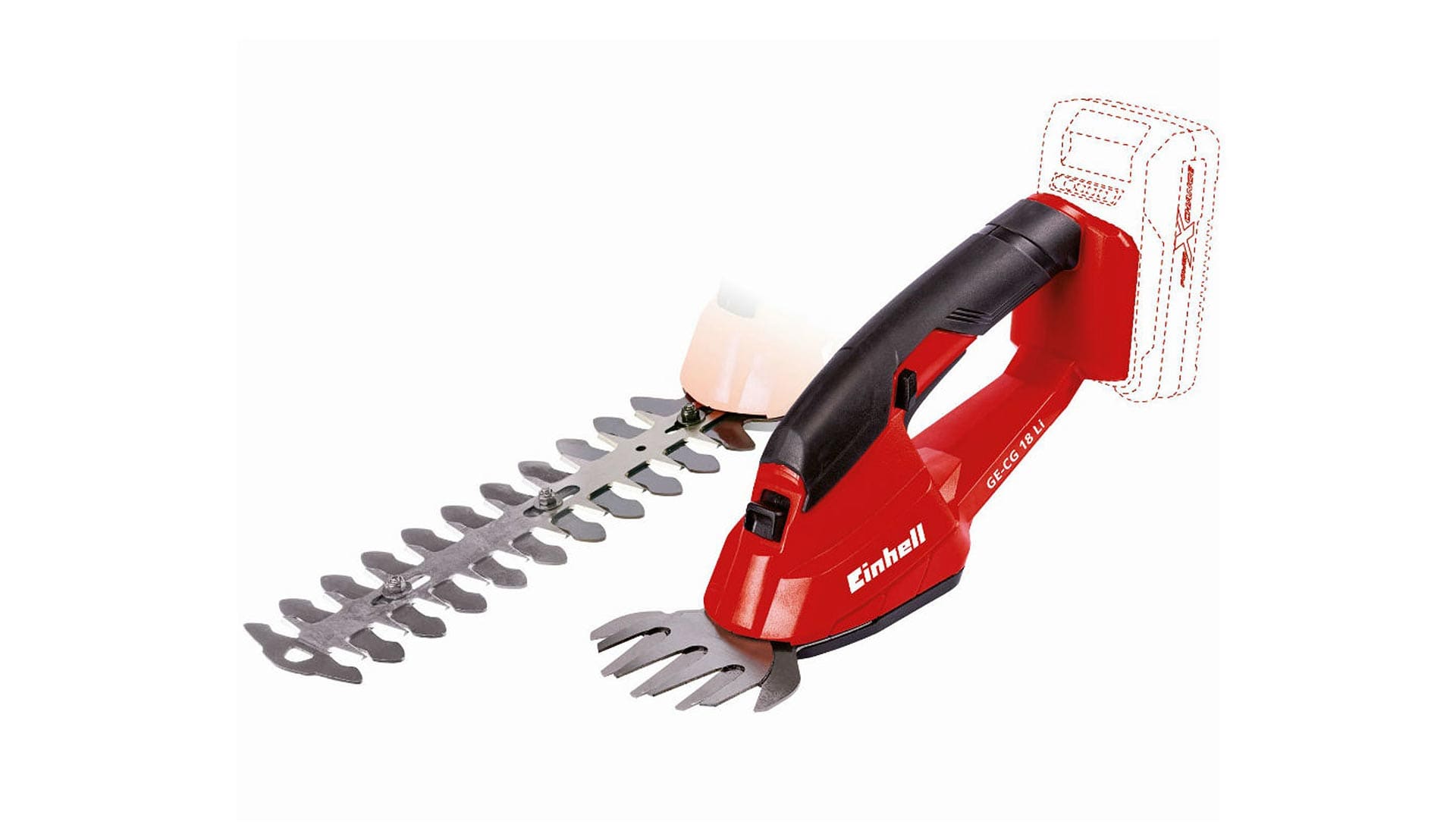
Which shrubs are suitable for shaping?
Boxwoods! Boxwoods are everywhere! The boxwood is especially popular in England, and is also used in Germany to add beauty to gardens. Another good choice is the evergreen Japanese holly, which is particularly tolerant to pruning. Even the common yew also handles pruning well, and scores extra points for its slow growth: these trees will not need frequent re-trimming. Plants such as laurel, lavender and pyracantha are also suitable for shaped cuts.
So how do you create first-class topiary?
The best time to shape a hedge is during the plant's main growth period between May and June. For best results, you should use a sharp hedge trimmer and divide the pruning into two stages:
- A rough pruning in early summer (May/June) to give the hedge the shape you are trying to obtain. You can do this either freehand or using a cutting aid made of wire mesh or cardboard. This is what provides the basic form – a shape or a ball, for example.
- In summer, it is time to trim again: if the hedge already has the desired shape, all shoots must be removed. If it still has to grow more, the young shoots should only be partially pruned. Depending on the type of plant and the shape you want, you may need to trim a few times. Caution: For the sake of nature, you should not carry out any more pruning after August.
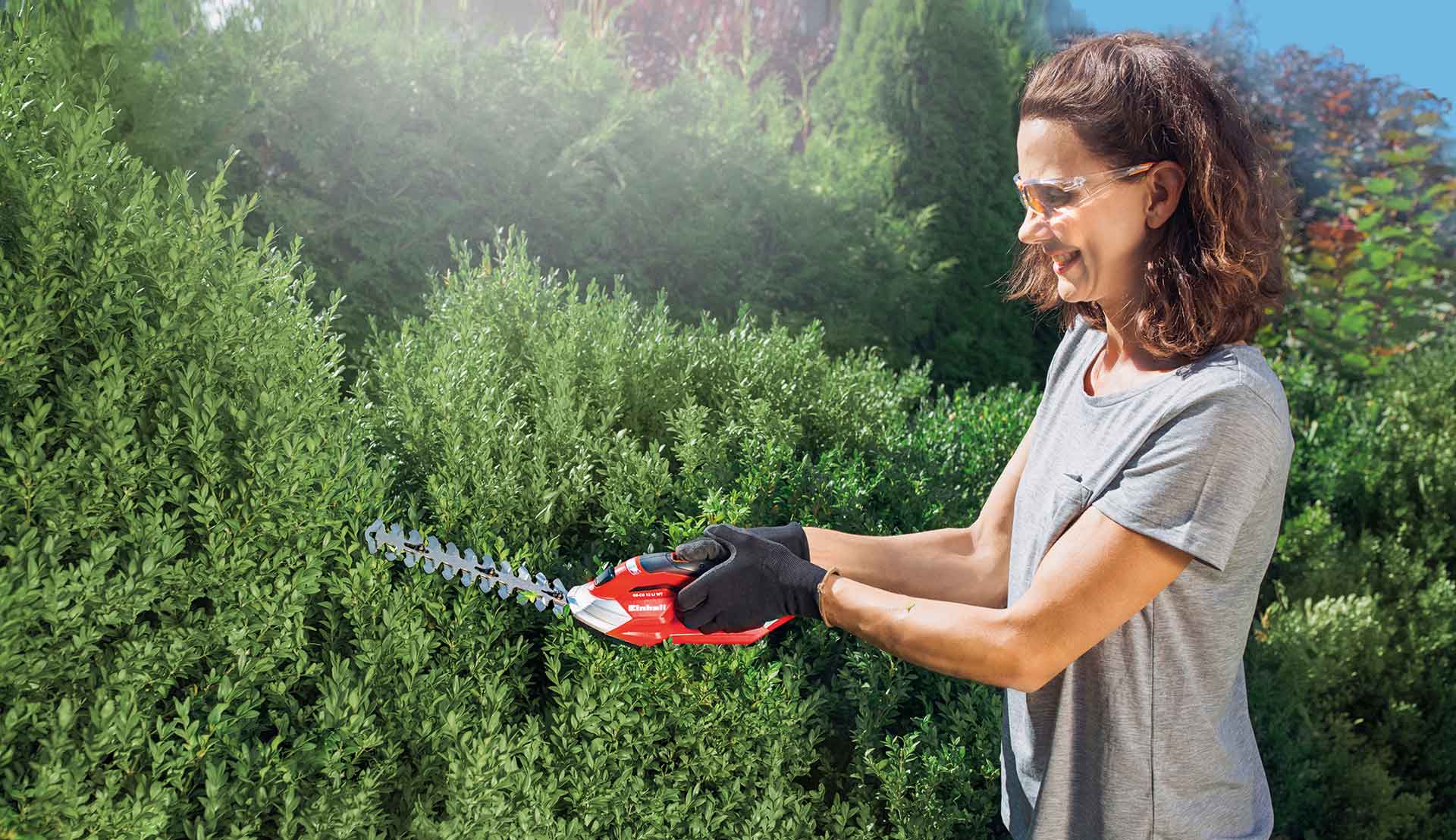
For shrubs and trees, large and small alike: Good preparation is key when cutting the plants in your garden. For example, to make getting rid of the waste cuttings afterwards easier, it's a good idea to spread a so-called landscape tarp under the plant that you are working on. You should also consider the shape you want to achieve in the end – prior planning makes for succesful trimming
Are you a novice among boxwood artists? You might find an additional shape guide to be especially helpful: Using wire or lengths of twine, you can create an aid to guide your cutting. Cardboard stencils can also be very helpful when clipping your trees or hedges into shape.
Overall, caution is advised when trimming: It's better to gradually feel your way to the desired result and patiently shape your garden hedges. If you do make a mistake when pruning, keep the following in mind: New shoots will grow from below the cuting and can fill in bare patches.
What shapes are used in topiary?
Small bushes that look like bunnies, perfectly round boxwoods or dynamic spirals – there are virtually no limits to the imagination when it comes to shaping the plants in your garden. Depending on your tastes and skill, you can choose between simple and complex results. A walk through the neghbourhood or browsing online can provide a wealth of inspiration. Some shapes are particularly popular with gardeners and rightly so: they make quite an impression.

Abstract art: Geometric shapes
Many hobby gardeners prefer geometric forms. Round and square shapes create clean lines in the home garden and look especially good with several shrubs of the same shape standing in a row. A interesting mix of spheres, cubes and pyramids also gives a great overall impression and looks almost like an abstract work of art.
Dynamic cuts: Asymmetric shapes
Want something more dynamic? Less cool than the geometric forms are asymmetric shapes and spirals. Although these are not so easy to shape and trim, it is definitely worth trying your hand at creating more challenging shapes. How about a spiral tree? With a little practice, you'll quickly get the hang of turning your evergreen hedges into unique features.
Peak creativity: Sculptures and complex shapes
Sculpture cuts are, in a sense, the ultimate test of skill with shrub shears. This is where true works of art are created:
- detailed animal figures such as rabbits or chickens
- Hedges that knot almost like stands of rope
- and even famous faces
Often, achieving such unique shape cuts often involves a lot of practice, and it takes multiple trims to add even small details.
The right tool for topiary
Shrub shears are the right tool to cut your shrubs and hedges in any shape you desire. Make sure the blades are sharp to avoid damaging the plant or tree. By also choosing an overcast day to prune, you can protect the delicate cuts from burns.

The right way to care for your shaped cut
To keep your shaped cut looking good and ensure the hedge can still grow well, you can help it along with regular smaller trims. Pruned hedges need extra fertiliser, as frequent cutting can be exhausting for the plants. You also have to take care of your plants in winter: Depending on the shape of the figure, accumulated snow can cause branches to break off or bend – so snow should be removed from the plants regularly.

Summary: With the right shaped cut, your garden can become the highlight of the neighborhood
Turn ideas into reality and start creating garden art with shrub shears from Einhell! Cut loose and get your garden in top shape with creative shaped cuts. Whether you are cutting your boxwoods into balls or planning an ambitious animal sculpture – shrub shears guarantee you success when it comes to shaping your shrubs.

